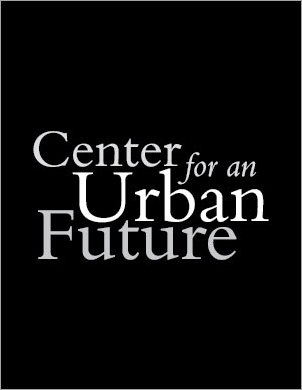
Commentary/Op-Ed - April 2002
Albany Should Stop Stiffing New York City
This op-ed was originally published in New York Newsday, April 11, 2002.
by Jonathan Bowles
Tags: economic growth albany
NEW YORK CITY is facing its worst fiscal crisis in a quarter century largely because of the attacks on the World Trade Center. But the city wouldn't be in nearly as bad fiscal shape today if not for a series of measures enacted over the past five years by Gov. George Pataki and the State Legislature that have cost the city lost revenue, imposed new financial mandates on the city and disproportionately benefited upstate and suburban areas at the city's expense.
In all, recent actions by the governor and the Legislature have deprived the city of about $2 billion in revenue and made it very hard for the city to get through this economic crisis. They are also the reason that the city must now consider such desperate budget-saving measures as borrowing $1.5 billion to pay this year's expenses, cutting $2 billion in services and raising taxes--all of which could create dire long-term consequences.
The politically motivated repeal of the city's commuter tax, which had generated roughly $400 million a year in revenue for city coffers until its elimination in 1999, drew near universal criticism. But dozens of other Albany actions that were enacted with little fanfare have had an equally damaging impact on the city.
In October 2001, even though it was clear that the city would be facing a huge budget deficit, state officials ended the $114-million-a-year payment the state had been making to the city since the stock transfer tax was eliminated in the 1970s.
In 2000, the state increased "revenue sharing" aid--the state's basic municipal aid program--to all localities other than New York City by 5 percent, but kept the city's share of this aid program at existing levels. This cost the city $16.5 million a year. And as a result of this and other funding decisions made in recent years, the city now gets 32 percent less municipal aid from Albany than it did 10 years ago. By contrast, over the same period of time, Syracuse has seen its share of state aid increase by 96 percent, Buffalo by 74 percent and Yonkers by 173 percent.
Since 1994, the state has enacted at least a half-dozen laws requiring the city toboost salaries and pension payments to certain municipal workers, circumventing the city's collective bargaining process and costing the city hundreds of millions of dollars.
A host of other programs have benefited upstate and suburban communities at the city's direct expense: The STAR property-tax relief program delivered about $70 per pupil to the city in 2000, compared to a statewide average of $413 per student; the state plan to split up monies from the national tobacco settlement provides counties outside the city with 145 percent of damages owed to them, but gives the city just 74 percent of its damages; the city has received less than 25 percent of funds from the 1996 Environmental Bond Act and the state's Environmental Protection Fund; and the state's school aid formula is so skewed against the city that a state supreme court judge last year ruled it unconstitutional.
Yet while the governor and legislative leaders are at least partly responsible for getting the city into its financial mess, they have provided appallingly little financial support to the city since Sept. 11.
In October, Gov. Pataki and Albany's legislative leaders reached a budget deal that included no significant state aid to the city for rebuilding or fiscal relief. Then, in January, Pataki unveiled a budget proposal for the coming fiscal year that actually shortchanges the city in education and economic development. For instance, his proposal for a $750-million Empire Opportunity Fund includes
money for economic projects in every region of the state -- except the five boroughs.
The state's lack of support for New York City after Sept. 11 contrasts sharply with how other states have come to the aid of their stricken cities. Following the 1989 earthquake that struck the San Francisco Bay Area, the nation's costliest natural disaster to that point, California's Republican governor and Democratic legislature agreed to supplement federal disaster aid with roughly $1 billion in state funds to support rebuilding efforts.
To be sure, New York state is dealing with its own budget crunch and can't be expected to come up with billions in new aid for the city this year. But the governor and legislative leaders haven't even been willing to restore the commuter tax.
During the boom years of the 1990s, the city almost single-handedly drove New York's economy, accounting for more than half of all new jobs created statewide and a similar share of state tax revenues. And when upstate communities were struggling, revenues from the city's economy provided the state with the surpluses that allowed the governor and Legislature to balance the budget, enact about $11 billion in politically popular tax cuts and provide emergency aid upstate.
It's clearly in the state's best interest to make sure the city quickly gets back on its feet. But if the city is forced to close a $4.8 billion budget gap without significant help from Albany, conditions in the city may get worse and the entire state will suffer.